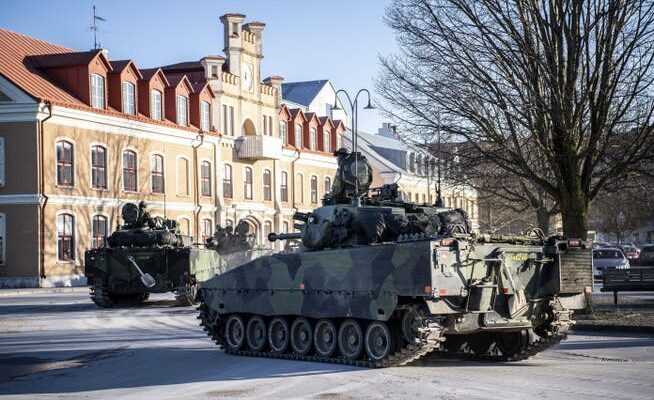Sweden and Finland want to give up their neutrality and strengthen the transatlantic alliance. The possible northward expansion of NATO provides valuable impetus for Swiss security policy.
In the past few weeks, Stockholm and Helsinki have taken a clear position and showed Russia their teeth: Sweden positioned tanks on the geopolitically exposed island of Gotland.
The end of Nordic neutrality gives new strength to the transatlantic idea. More solidarity with NATO strengthens freedom and democracy throughout Europe. Switzerland should also think about this – even if full accession to the western military alliance is out of the question. But it is worth taking a closer look at the path taken by Sweden and Finland. Politically and militarily, the two countries are often closer to Switzerland than their immediate neighbors.
In the past few weeks, Stockholm and Helsinki have taken a clear position and showed Russia their teeth: Sweden positioned tanks on the geopolitically exposed island of Gotland. Now it is to be fully integrated into the NATO system. The Finnish Air Force recently used its F/A-18s to train enhanced air policing over the Baltic States.
Military solidarity from neutral Switzerland is possible
The military show of force, or “show of force” in NATO slang, seems to be having an effect. Apparently, the readiness to defend Helsinki and Stockholm inspired the Russian leadership. Moscow is reacting with almost demonstrative restraint to Sweden’s and Finland’s applications to join NATO. Apparently, Russian President Vladimir Putin and his team only understand the language of strength. Now the Kremlin sounds almost meek.
Northern expansion would mean a substantial strengthening of the transatlantic alliance. Unlike Germany, Sweden and Finland have a sovereign overall military system. The two Nordic countries can ensure the basic performance of their own national defense themselves. This relieves the United States in particular, which continues to make the greatest contribution to Europe’s security with its armed forces.
What’s more, Sweden and Finland already saw themselves as sharing responsibility for protecting the fragile position of the three Baltic states against Russia. One of the keys to this was training in concrete cooperation with NATO. This is exactly where Switzerland must now build on: Even if the Swiss army will never send a tank battalion to the Baltic States, forms of military solidarity are possible. The first step is to improve interoperability, i.e. the ability to work together.
Orientation to the east and also to the south
The Defense Department (DDPS) in Bern is rightly examining whether Switzerland could become a “partner with enhanced opportunities” – or in NATO language: Enhanced Opportunities Partner (EOP). In doing so, it would slide down to the previous position of Sweden and Finland, which have deepened cooperation with the NATO countries through this format. The prerequisite for this, however, is a comprehensive renewal of the Swiss army.
The planned increase in the army budget is therefore not in conflict with closer cooperation with NATO. Especially as a non-member, Switzerland must continue to have all the military capabilities it needs in order to be taken seriously as a sovereign partner. One of the most successful economies in Europe must not be a burden on its neighbors. What is needed are substantial offers that serve the security of all of Europe.
The Swiss army must certainly be able to guarantee the protection of critical infrastructure: This includes the energy and transport transversals through the Alps. If the hybrid conflict with Russia intensified, this would have existential importance for the European economy. An expanded air policing service for Swiss fighter jets beyond national borders would also be possible.
An armed neutral state must assume some military responsibility. The geographical location in the middle of Europe forces Switzerland to have a strong military defense not only against threats from the east, but also from the Mediterranean region. Just like Sweden and Finland have been committed to the security of their neighbors in the far north and in the Baltic Sea in recent years.
